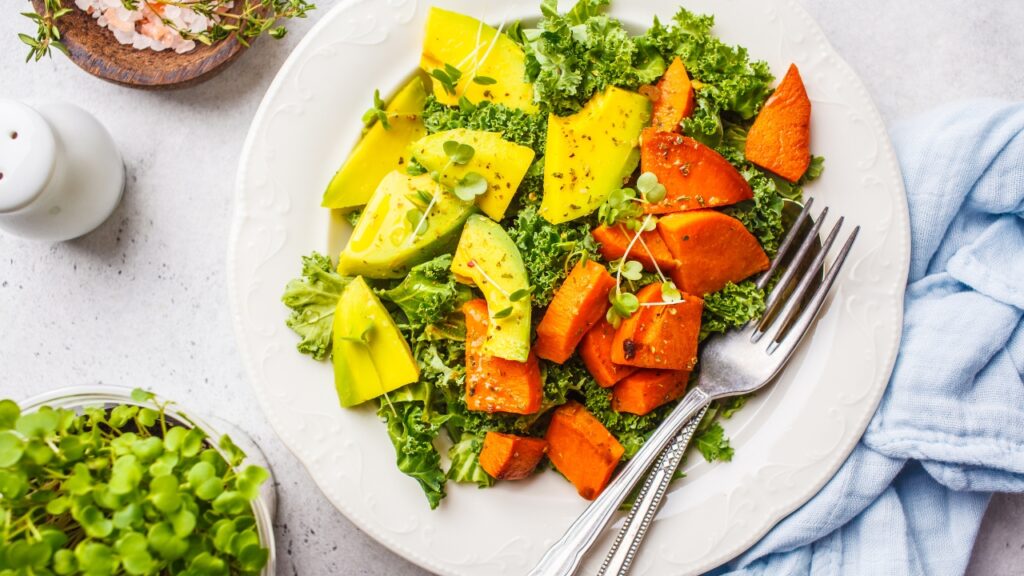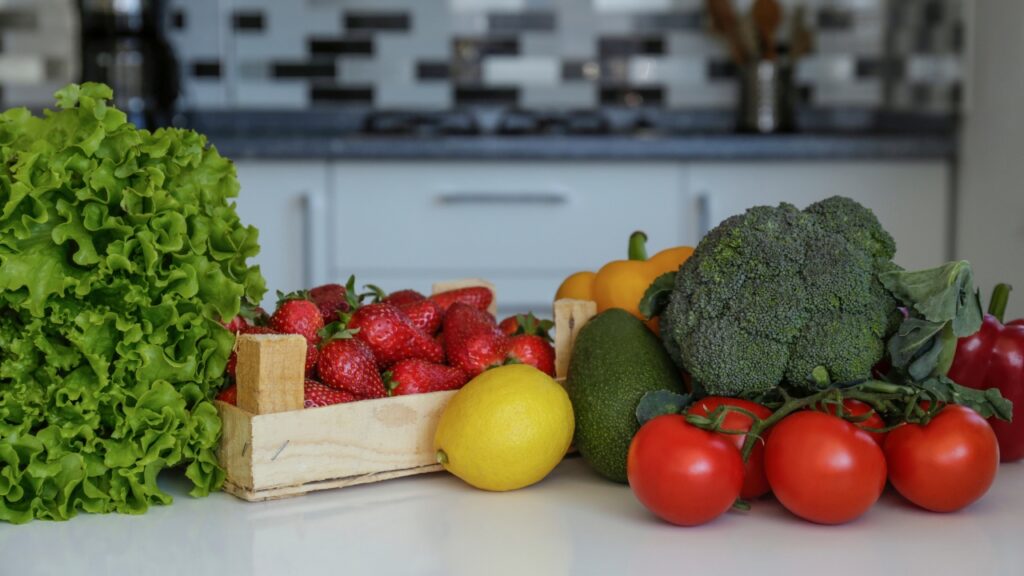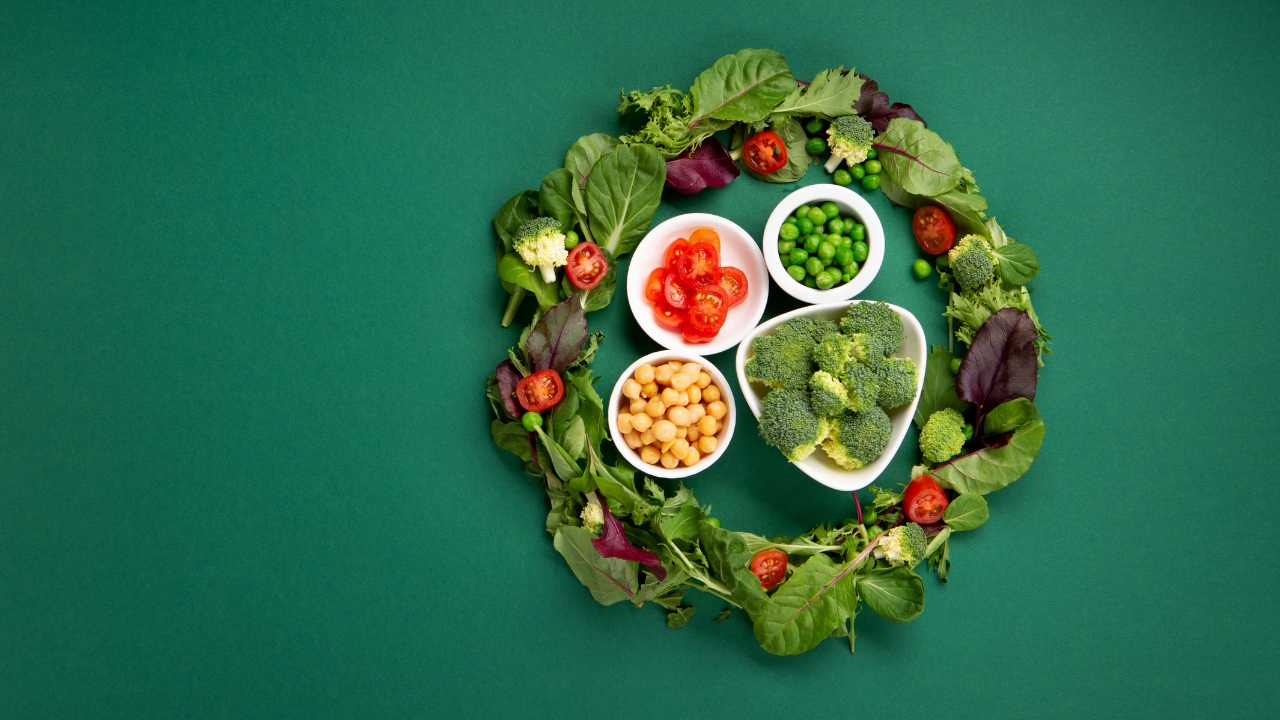Are you thinking about switching to a plant-based diet but don’t know where to start? You’re in the right place!
Embracing a plant-based lifestyle can initially seem daunting, but wt can be a delicious and rewarding journey. with the right guidance
Whether you’re aiming for better health, environmental sustainability, or animal welfare, this guide to a plant-based diet for beginners will provide you with all the essential tools you need to navigate this exciting lifestyle change.
So, grab a comfy seat, maybe a snack (preferably plant-based!), and let’s dive into the world of plants, veggies, and everything in between!
What is a Plant-Based Diet?
A plant-based diet primarily consists of foods derived from plants. This includes not only fruits and vegetables but also nuts, seeds, oils, whole grains, legumes, and beans. While it doesn’t strictly eliminate animal products, the focus is on consuming more plant-based foods than animal-derived ones.
Here’s a quick breakdown of what you’ll find in a typical plant-based diet:
- Fruits and Vegetables: Fresh, frozen, or dried—load up on colorful varieties!
- Whole Grains: Think quinoa, brown rice, barley, and oats.
- Legumes: Beans, lentils, and peas are fantastic protein sources.
- Nuts and Seeds: Almonds, walnuts, chia seeds, and flaxseeds add crunch and nutrition.
- Healthy Fats: Olive oil, avocado, and coconut oil can be your go-to fats.
When you’re first starting out, remember that it’s not about perfection; it’s about progress!
Benefits of a Plant-Based Diet

You might be wondering, “Why go plant-based?” Well, let me hit you with some compelling reasons!
1. Improved Health
Numerous studies show that a plant-based diet can lower the risk of chronic diseases like heart disease, diabetes, and certain cancers.
2. Weight Management
Most plant foods are lower in calories and high in fiber, helping you feel full while still managing your weight. Who wouldn’t want that?
3. Environmental Impact
By reducing animal product consumption, you’re also helping to decrease greenhouse gas emissions, water usage, and land degradation. Go you!
4. Animal Welfare
Choosing a plant-based diet aligns with compassion for animals. You’re making a statement that you care about the well-being of our furry friends.
5. Variety of Flavors
Trust me, the variety of flavors and textures you’ll experience is mind-blowing! From the crunch of fresh veggies to the richness of beans and grains, you’ll never get bored.
Getting Started: Your Guide to Plant-Based Diet for Beginners
Step 1: Educate Yourself
Before jumping into this lifestyle, take some time to educate yourself. Read books, watch documentaries, and follow blogs about plant-based eating. Understanding the why’s and how’s can really inspire you!
Step 2: Clear Out Your Pantry
Let’s be real—if you want to succeed, you need to set the stage! Go through your pantry and fridge. Say goodbye to processed snacks, sugary cereals, and other non-plant-based foods. This is a fresh start, after all!
Step 3: Stock Up on Essentials
Now that you’ve made some space, it’s time to fill it with delicious plant-based staples. Here’s a list to get you started:
- Fruits: Bananas, apples, berries, oranges, and avocados
- Vegetables: Spinach, kale, broccoli, carrots, and bell peppers
- Whole Grains: Quinoa, brown rice, whole wheat pasta, and oats
- Legumes: Black beans, chickpeas, lentils, and kidney beans
- Nuts and Seeds: Almonds, walnuts, pumpkin seeds, and chia seeds
- Plant-Based Milks: Almond, soy, oat, or coconut milk
Step 4: Experiment with Recipes
Cooking can be a fantastic adventure! Try new recipes that highlight whole foods and seasonal ingredients. You might discover a newfound love for dishes you’ve never tried before. Here are a few ideas to get you started:
- Chickpea Salad Sandwich: Mash chickpeas, mix with vegan mayo, add diced celery, and enjoy between whole-grain bread.
- Vegetable Stir-Fry: Toss your favorite veggies in a pan with some soy sauce and serve over brown rice or quinoa.
- Smoothie Bowl: Blend your favorite fruits with some plant-based milk, pour into a bowl, and top with nuts, seeds, and granola.
Step 5: Plan Your Meals
Meal planning can save you time and ensure you stick to your new diet. Set aside a little time each week to plan out your meals. Not only will this help you stay on track, but it’ll also reduce stress during the week!
Nutritional Consideration
Transitioning to a plant-based diet can be incredibly nutritious, but it’s essential to ensure you’re getting all the necessary nutrients. Here are some key nutrients to keep in mind:
1. Protein
While you can get plenty of protein from plant sources, it’s crucial to include a variety. Some great sources include:
- Lentils
- Quinoa
- Chickpeas
- Tofu
- Tempeh
- Nuts and seeds
2. Vitamin B12
This vitamin is mainly found in animal products, so you might need to supplement it or consume fortified foods like plant milks and cereals.
3. Iron
Plant-based sources of iron include lentils, beans, spinach, and fortified cereals. Pairing iron-rich foods with vitamin C sources (like citrus fruits) can enhance absorption.
4. Omega-3 Fatty Acids
Flaxseeds, chia seeds, and walnuts are excellent plant sources of omega-3s. Incorporate these into your diet to support heart health.
5. Calcium
Dark leafy greens, tofu, and fortified plant milks can help you meet your calcium needs without dairy.
Common Misconceptions About Plant-Based Diets

Misconception 1: It’s Too Expensive
While some plant-based specialty products can be pricey, whole foods like grains, beans, and seasonal produce can be quite affordable!
Misconception 2: You’ll Be Nutrient Deficient
As long as you plan your meals wisely, you’ll likely get all the nutrients you need. It’s all about variety!
Misconception 3: It’s All About Salads
Sure, salads are great, but a plant-based diet is so much more! You can enjoy pasta, curries, sandwiches, and so much more.
Misconception 4: It’s Hard to Find Food When Dining Out
More and more restaurants offer plant-based options. You can even find dedicated plant-based eateries!
Tips for Staying on Track
- Find a Buddy: Team up with a friend who’s also interested in going plant-based. You can share recipes, tips, and support each other!
- Join Online Communities: There are tons of online groups and forums where you can connect with other plant-based eaters for advice and motivation.
- Be Patient: Change takes time, so don’t beat yourself up if you slip up now and then. Just keep moving forward!
Conclusion
So there you have it—the ultimate guide to a plant-based diet for beginners! You’re now armed with knowledge, tips, and delicious ideas to kickstart your journey. Remember, it’s all about making small, sustainable changes and finding joy in the process.
Whether you’re looking to improve your health, make a positive environmental impact, or simply explore new flavors, a plant-based diet offers endless possibilities. So, roll up your sleeves, get cooking, and enjoy the adventure that awaits you in the vibrant world of plant-based eating! Happy eating!
FAQs About a Plant-Based Diet
Do I have to give up all animal products?
Not necessarily! Many people adopt a plant-based diet gradually, reducing animal products over time.
Can I get enough protein from a plant-based diet?
Absolutely! With a variety of legumes, grains, nuts, and seeds, you can easily meet your protein needs.
What if I don’t like certain vegetables?
No worries! There’s a world of plant-based options out there. Try different cooking methods or explore new veggies to find what you love.
Is it difficult to eat out as a plant-based eater?
Not at all! Most restaurants now offer plant-based options. Just check the menu ahead of time or ask your server for suggestions.


Leave a Reply